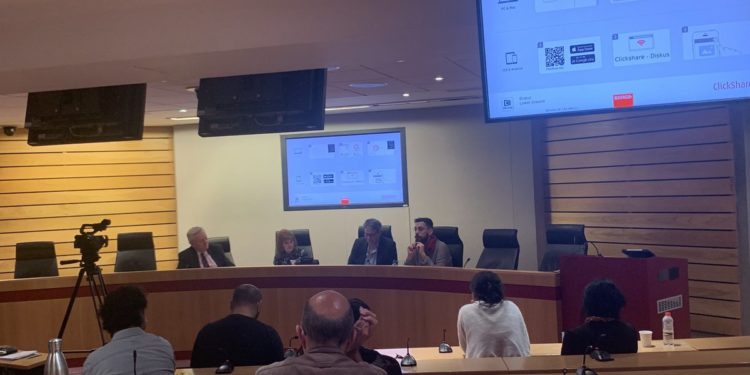A panel was held at the Unison headquarter in London, with the slogan “Time to De-list the PKK: Respect International Law!”
The Kurdistan Workers Party (PKK) is not a terrorist organisation, according to the March 2019 decision by Belgium’s Court of Appeal, applying principles of international law.
The event was hosted by Campaign Against Criminalising Communities (CAMPACC), Peace in Kurdistan, London Kurdish Solidarity (LKS), on Thursday, 20th June 2019.
The event was chaired by Anne Gray of CAMPACC. The main guest speaker Jan Fermon the Belgium lawyer in the case who led the successful defence of the Kurdish activists in Belgium. He was joined by Alastair Lyon of Birnberg Peirce Solicitors and Nik Matheou, London Kurdish Solidarity (LKS)
Many have participated in the panel. Questions were answered by the panellists.
Main facts regarding the case
On 8 March 2019, the Indictment Chambers of the Court of Appeal of Brussels Belgium took a decision dismissing the case and ending all further prosecution against 40 persons and 2 companies for being agents of PKK, the Kurdistan Workers Party.
The decision comes to the same conclusion as the earlier decision of the same court pronounced on 14 September 2017, subsequently quashed on some deficiencies in the statement of reasons by the Court of Cassation on 13 February 2018, namely that the conflict between PKK and the Turkish state is a non-international armed conflict as defined by international law and ruled by the laws of war (international humanitarian law), not by anti-terrorism laws.
The 42 defendants faced prosecution on charges of leading a terrorist group or assistance of any kind to such a group. None of the defendants was suspected of any direct or indirect involvement in acts of violence. The alleged facts underlying the accusations were collecting funds for PKK, spreading propaganda and/or participating in the recruitment for the organisation.
The defendants were all Kurdish activists in Belgium, some holding positions in the Kurdish National Congress (KNK), some being members of local Kurdish associations and others being representatives of Syrian and Iranian Kurdish political parties etc. The two companies which were prosecuted are production companies for Kurdish television and radio. The Prosecution argued that all these organisations, parties etc. were, in reality, integral parts of PKK.




